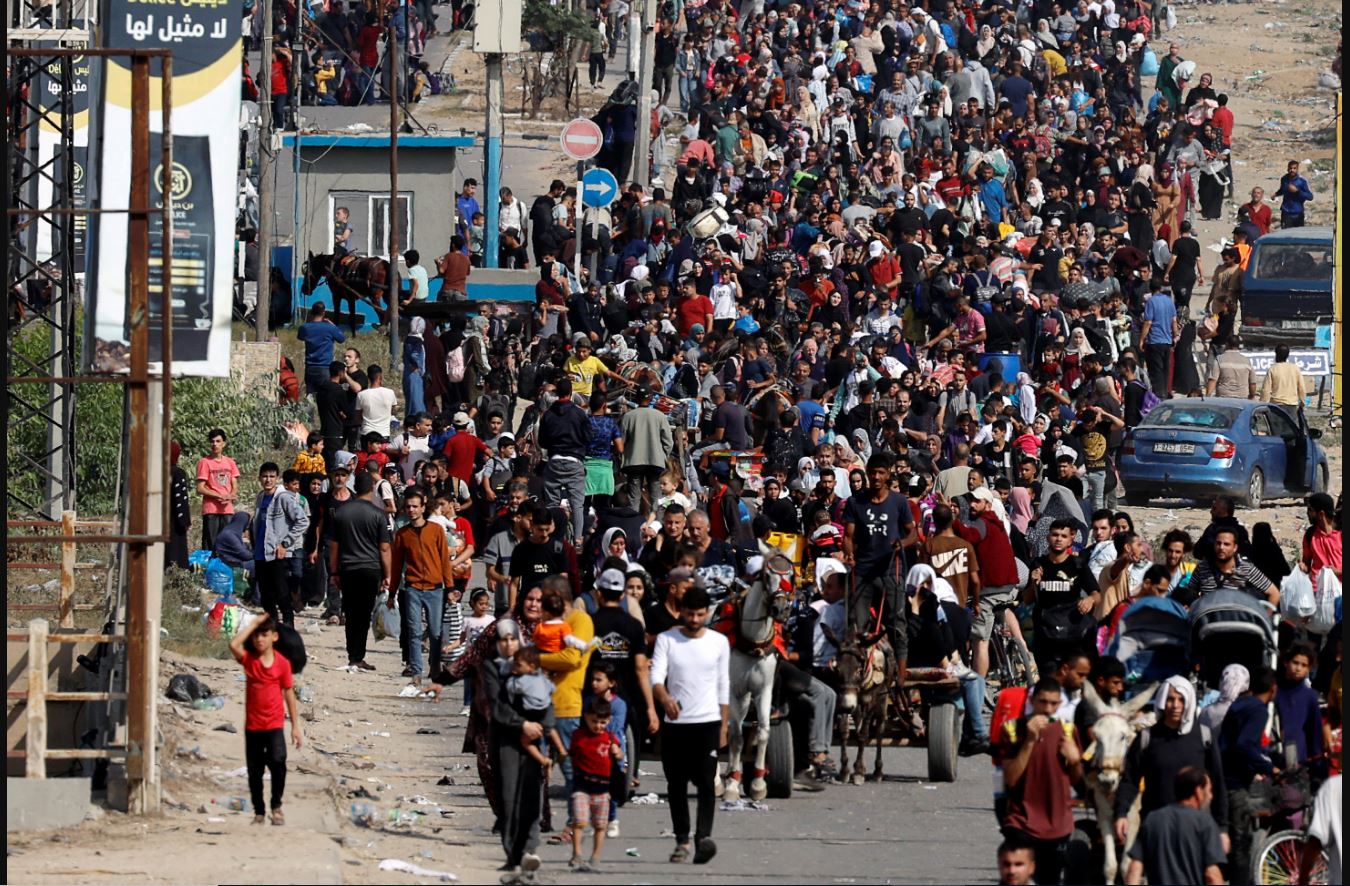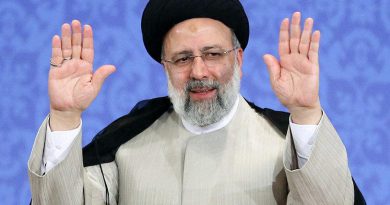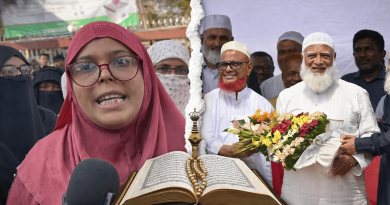Displaced pack Gaza hospitals, others flee as Israeli troops and Hamas fighters clash
Gaza/Jerusalem (Reuters) – Israeli forces fought Hamas militants among ruined buildings in the north of the Gaza Strip on Thursday, inching their way closer to two big hospitals as the plight of civilians in the besieged Palestinian territory worsened.
Thousands more Palestinians were fleeing from the embattled north to the south along a perilous frontline path after Israel told them to evacuate, residents say.
But many are staying in the north, packed into the Al Shifa Hospital and al-Quds Hospital as ground battles rage around them and more Israeli air strikes rain down from above.
Israel says its Hamas foes have command centres embedded in the hospitals.
In Paris, officials from about 80 countries and organisations were meeting to coordinate humanitarian aid to Gaza and find ways to help wounded civilians escape the siege, now in its second month.
Aid agencies called for an immediate ceasefire.
“We cannot wait a minute more,” said Jan Egeland, Secretary General of the Norwegian Refugee Council, calling Israel’s actions “collective punishment”.
“Without a ceasefire, lifting of siege and indiscriminate bombarding and warfare, the haemorrhage of human lives will continue.”
His calls were echoed by the United Nations and the International Red Cross, although Isarel and its main backer the United States reject a full ceasefire.
Israel unleashed its assault on Gaza in response to a cross-border Hamas raid on southern Israel on Oct. 7 in which gunmen killed 1,400 people, mostly civilians, and took about 240 hostages, according to Israeli tallies.
It was the single worst day of bloodshed in Israel’s 75-year history and drew international condemnation of Hamas and sympathy and support for Israel.
But Israel’s retaliation in the Hamas-ruled enclave has caused great concern as a humanitarian catastrophe has unfolded.
Palestinian officials said 10,569 Gaza residents had been killed as of Wednesday, about 40% of them children, in air and artillery strikes while basic supplies are running out and areas laid waste by unrelenting Israeli bombardments.
Residents in Gaza City, a Hamas stronghold, said Israeli tanks were stationed around the area. Both sides reported inflicting heavy casualties on one another in intense street battles.
Israel, which has vowed to wipe out Hamas, says 33 of its soldiers have been killed in its ground operation as they advanced into the heart of Gaza City.
Israeli troops had secured a Hamas military stronghold called Compound 17 in Jabalya in northern Gaza after 10 hours of combat with Hamas and Islamic Jihad militants above and below the ground, the Israeli military said on Wednesday.
It said troops killed dozens of militants, seized weapons, exposed tunnel shafts and discovered a Hamas weapons manufacturing site in a residential building in the Sheikh Radwan neighbourhood.
Israeli military footage showed soldiers walking through rubble into a building where one wall had been blasted away, finding weapons-manufacturing equipment, instruction manuals and a tunnel shaft.
Nearby was a girl’s bedroom with pink walls, pink wardrobes and three little beds.
The armed wing of Hamas said it had killed a greater number of Israeli soldiers than the military has announced, and had destroyed dozens of tanks, bulldozers, and other vehicles. It released footage of fighters firing anti-tank rockets and scoring direct hits to vehicles.
Nowhere To Run To
Thousands of Palestinians have sought refuge at Al Shifa hospital inside Gaza City despite Israel’s orders to evacuate the area it has encircled. They are sheltering in tents in the hospital grounds and say they have nowhere else to go.
The U.N. humanitarian office OCHA said Israeli had again told residents of the north to move southwards, opening a four-hour corridor for the fifth consecutive day. About 50,000 people left the area on Wednesday, it said.
Clashes and shelling around the main road continued, the OCHA said, endangering evacuees. Corpses lay alongside the road, while most evacuees were moving on foot as the Israeli military had told them to leave vehicles, it said.
One resident, who asked not to be named, said he had crossed with his wife and six children including two adult daughters after having initially taken shelter in Gaza City from their home in Beit Hanoun close to the frontier with Israel.
“There are no taxis and you can only take a small amount with you. You have to hold your ID card in your hand and raise it as you go past the Israeli tanks and then walk several more kilometres searching for a lift,” he said.
Huge numbers of displaced people from among Gaza’s 2.3 million population are already crammed into schools, hospitals and other sites in the south.
Fighting close to Al Shifa would pose a challenge for Israeli forces, said Shalom Ben Hanan, a former top official in Israel’s Shin Bet security service, given troops may need to evacuate civilians who ignored warnings to leave.
“They (Hamas) will shoot at us and will fight with us from the hospital,” he told Reuters in Jerusalem. “We will pay a high price for it.”
Although the fighting is concentrated in the north, southern areas have also come under regular attack.
In Khan Younis, Gaza’s main southern city, residents picked through the rubble and twisted debris of a building destroyed by an Israeli air strike, hoping to find survivors, on Thursday morning, witnesses said.
Ceasefire Calls
The conference in Paris, attended by Arab nations, Western powers, G20 members and NGO groups such as Doctors Without Borders, was discussing measures to alleviate the suffering in Gaza but without a pause in the fighting expectations are low.
President Emmanuel Macron, as he opened the conference, called for a humanitarian pause.
“The situation is serious and getting worse each day,” he said.
Palestinian Prime Minister Mohammad Shtayyeh, whose Palestinian Authority has limited self-rule in the Israeli-occupied West Bank but was driven out of Gaza by Hamas in 2007, was present at the conference. Israel was not invited.
“How many Palestinians must be killed for the war to stop,” Shtayyeh asked. “Is killing 10,000 people in 30 days enough?”
The PA says the Gaza Strip is an integral part of what it envisions for a future Palestinian state. Israeli officials have said they do not intend to occupy Gaza after the war, but have yet to articulate how they might ensure security. Israel withdrew its forces from Gaza in 2005.



